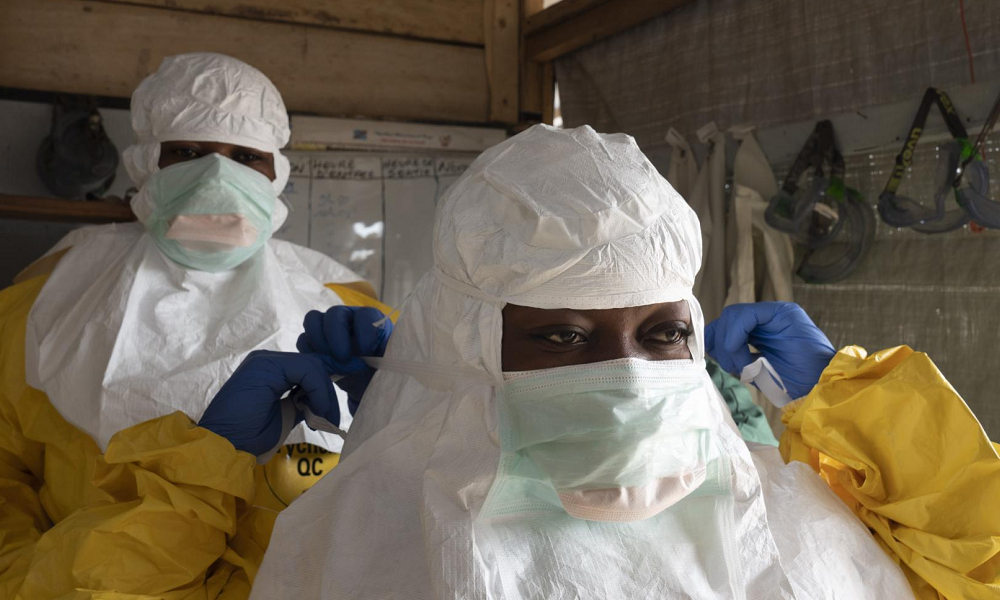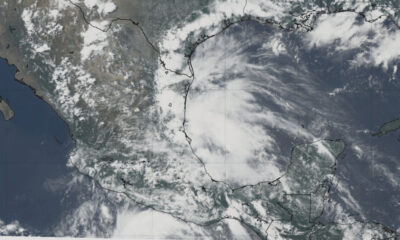US News
U.S. issues travel alert for Uganda due to Ebola outbreak

The U.S. Centers for Disease Control (CDC) has issued a travel alert for Uganda, where authorities are scrambling to contain an outbreak of an Ebola strain for which there’s no vaccine.
Ebola tracker: Click here for daily updates
The CDC issued a Level 2 Alert, meaning travelers should take enhanced precautions, for all of Uganda. A Level 3 Warning, which urges against non-essential travel, was issued for five districts.
“Travelers should avoid contact with sick people and avoid contact with blood or body fluids from all people,” the CDC said in the alert. “Travelers should avoid contact with dead bodies, including participating in funeral or burial rituals.”
A travel warning, which discourages against all non-essential travel, was issued for Mubende, Kassanda, Kyegegwa, Kagadi and Bunyangabu. Those are the five districts where cases have been found so far.
“Travelers should isolate immediately and seek medical care if they develop signs and symptoms like fever, muscle pain, sore throat, diarrhea, weakness, vomiting, stomach pain, or unexplained bleeding or bruising during or for up to 21 days after travel,” the CDC said.
Uganda declared an Ebola outbreak on September 20 after a 24-year-old man from Mubende District tested positive for Sudan ebolavirus, which is one of six species of the ebolavirus genus. The strain had not been found in humans since 2012.
Uganda has reported 62 cases so far, including 28 deaths. Only four people have recovered.
“CDC and the World Health Organization (WHO) are working with local health authorities to identify sources of transmission, conduct case investigations, and strengthen local laboratory capacity,” the CDC said in Tuesday’s statement.
There have been seven previous outbreaks of Sudan ebolavirus, with four occurring in Uganda and three in Sudan. Those outbreaks showed an average mortality rate of 57%, which is high but lower when compared to Zaire, which kills about 70% on average.
Current evidence suggests that the ERVEBO vaccine, which is used to control outbreaks with the Zaire variant, is not effective against the Sudan strain. Six vaccine candidates are in different stages of development.

-

 Legal7 days ago
Legal7 days agoFirefighters ambushed while responding to Idaho wildfire, at least 2 killed
-

 Legal1 week ago
Legal1 week agoWashington Post journalist Thomas LeGro arrested for child porn possession
-

 World1 week ago
World1 week agoTropical Storm Barry forms in the Gulf, expected to make landfall in eastern Mexico
-

 Legal5 days ago
Legal5 days agoOvidio Guzmán, son of ‘El Chapo,’ to plead guilty in Chicago drug trafficking case
-

 US News5 days ago
US News5 days agoMassive explosions reported at fireworks site in Yolo County, California
-

 Legal4 days ago
Legal4 days agoAt least 4 injured in shooting at mall in Savannah, Georgia
-

 Health5 days ago
Health5 days agoCambodia reports 3 new human cases of H5N1 bird flu
-

 US News1 week ago
US News1 week agoU.S. ends Temporary Protected Status for Haiti, citing improved conditions



